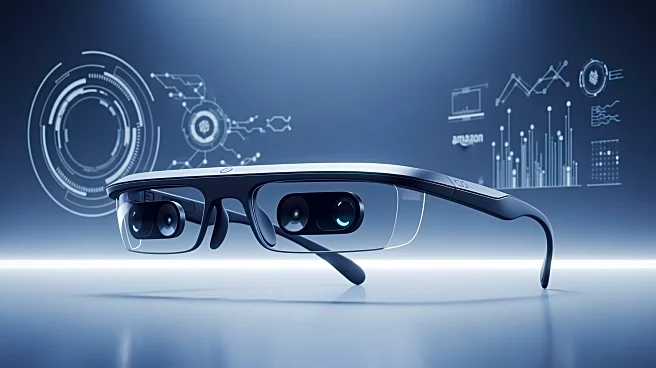What's Happening?
The augmented reality (AR) industry is experiencing significant developments as major brands like Meta and Amazon introduce new products. Ray-Ban Meta Gen 2 smart glasses have launched with an impressive
eight-hour battery life, enhancing consumer appeal. Amazon is developing AI driver glasses aimed at improving delivery speed and safety. The market is forecasted to see a 39.2% increase in AR/VR shipments in 2025, indicating accelerated growth. These advancements are moving AR from niche prototypes to mainstream consumer hardware, with products designed for both everyday use and specific industries like delivery services.
Why It's Important?
The expansion of AR technology is poised to impact various sectors, including retail, logistics, and consumer electronics. The introduction of worker-focused AR products, such as Amazon's AI glasses, could revolutionize operational efficiency in delivery services. For consumers, the improved battery life and integration of smart glasses like Ray-Ban Meta Gen 2 make daily use more feasible, potentially increasing adoption rates. Investors and companies in the AR space stand to benefit from the growing market, as demand for innovative and practical AR solutions rises.
What's Next?
As AR technology continues to evolve, companies are likely to focus on enhancing user experience and expanding applications across different industries. The competition among tech giants to develop lighter, more efficient AR devices will drive innovation and potentially lead to more affordable options for consumers. The retail sector may see increased availability of AR products, making them more accessible to the general public. Additionally, the integration of AI in AR devices could open new possibilities for automation and efficiency in various fields.










